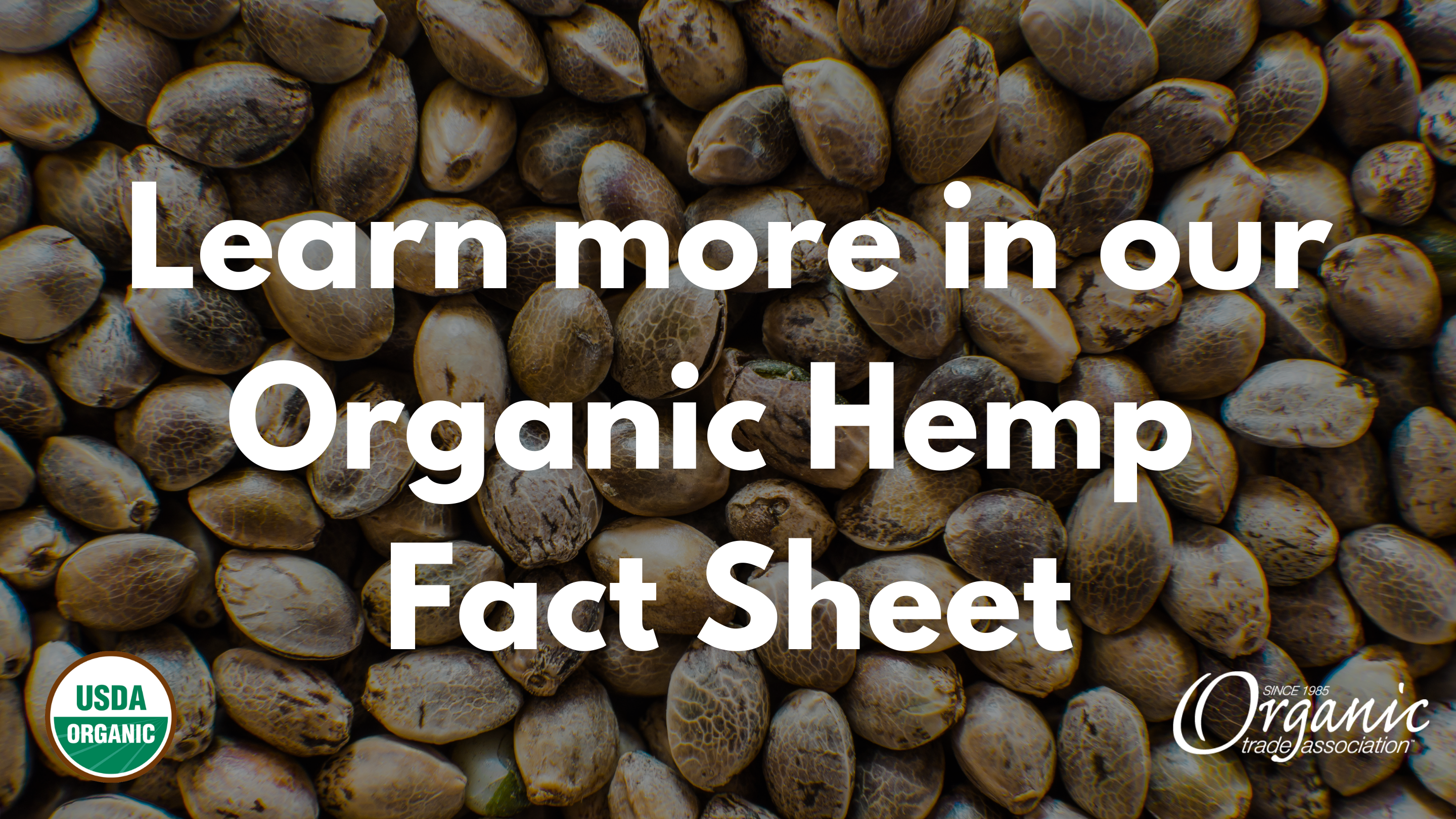The Organic Hemp Opportunity
Hemp (Cannabis sativa L.), also called industrial hemp, is a plant of the family Cannabaceae cultivated for its bast fiber or its edible seeds and oils. The 2018 Farm Bill legalized the production of hemp as an agricultural commodity and removed it from the list of controlled substances. On January 19, 2021, USDA published a final hemp rule making it possible for farmers to legally grow industrial hemp under a U.S. Domestic Hemp Production Program.
The Organic Trade Association recognizes the tremendous opportunity this monumental action can have for organic hemp farmers and manufacturers and for the wide range of products our members produce, including foods and beverages, cosmetics and personal care products, nutritional supplements, fabrics and textiles, yarns and spun fibers.
Our position is that there is no need to work with a conventional crop because organic agriculture has all of the tools needed to produce a thriving hemp crop and associated hemp products. Growing hemp organically is better for the planet, and it is ultimately what the consumer wants.
The Organic Trade Association’s simplified position?

USDA-NOP Certification of Hemp and Hemp Products
Hemp produced in accordance with the U.S. Domestic Hemp Production Program may be certified as organic if produced in accordance with USDA organic regulations.
Certified organic hemp is grown using methods and materials that have a low impact on the environment. Organic production systems replenish and maintain soil fertility, expand biologically diverse agriculture, and prohibit the use of synthetic toxic and persistent pesticides and fertilizers, as well as genetically engineered seed. Third-party certification organizations verify that organic producers and handlers meet strict federal regulations addressing the methods and materials allowed in organic production.
Visit The Organic Center to learn more about the benefits of organic agriculture
Resources
Organic Trade Association’s Comments on Interim Final Rule on Hemp Production Organic Hemp Certification Fact Sheet

